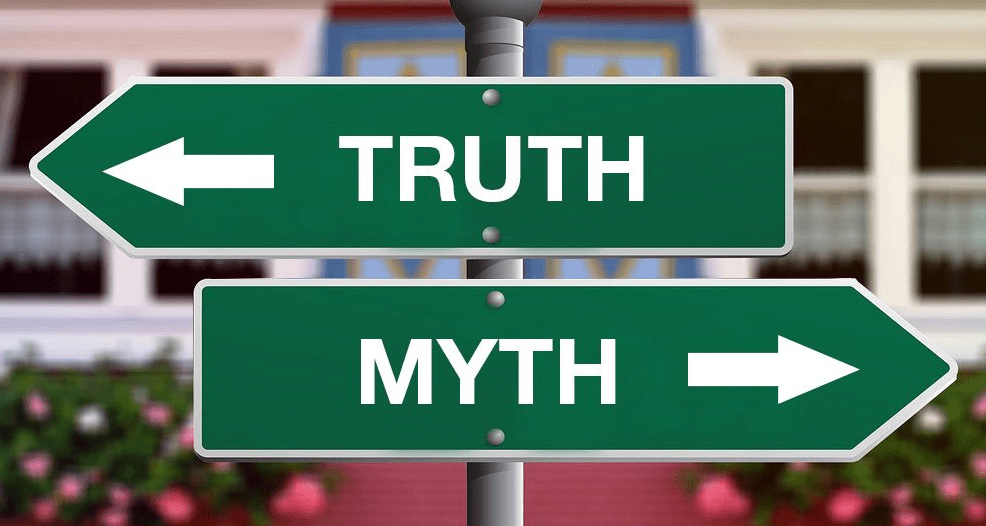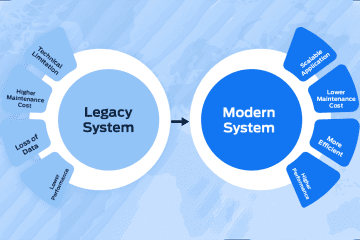Table of Contents

Don’t Fall For These IPTV Myths
Here at Setplex, we know a lot about Internet Protocol Television. We are confident that IPTV is the future when it comes to media content delivery and we are dedicated to helping the reach of IPTV spread as much as possible. Because we are so involved with the IPTV world we sometimes hear myths and rumors that don’t paint IPTV in the best light.
While some of these myths have a kernel of truth hidden within them to make them sound believable, most of them are nothing more than falsehoods that have gained momentum because of an uninformed public.
To help combat these myths, we are going to spend today’s post debunking some of the most common ones here in relation to the technical aspects of IPTV. We hope that by the end of this blog all of our readers understand that while these myths might sound plausible, they are in fact false.
Myth 1: IPTV isn’t as secure because it travels over the internet.
One of the most popular myths we come across, and the first one on our list, has to do with security as it relates to IPTV. We often hear people express concern over the fact that because IPTV content providers use the internet to transmit their content, it is much more vulnerable to attacks by hackers and other nefarious individuals.
In reality, IPTV is actually much harder for hackers to compromise when compared to satellite, cable, and over-the-air broadcasting. IPTV, through the use of two-way set top boxes, can send secure messages to and from the operator’s network including authentication messages, decryption codes, and confirmation codes.
In relation to non-IPTV services, IPTV is actually much more secure than other means of content delivery. Satellite and cable set-top-boxes rely on storing decryption keys in tamper-proof smart cards or as an embedded security processor which reads the keys sent with the content. These cards and processors can become compromised easily by hackers who simply have to make a duplicate of the card and processor, allowing them to access content that they should not be able to access.
For this reason, IPTV is actually more secure than other forms of media content delivery because it makes use of encryption systems that are more secure than any found in cable or satellite set-top-boxes.
Myth 2: IPTV could become illegal because of net neutrality laws.
Over the past few years, net neutrality has become a topic of heated discussion. Proponents of the law say it is necessary to ensure that the internet is “fair” while detractors say that any limitations placed on the neutrality of bandwidth will do nothing but raise prices for internet services and could give favor to bandwidth from “preferred” websites.
Whatever your stance on net neutrality, it cannot be denied that the implications of these laws could have a serious impact on the future of IPTV. However, the myth that net neutrality laws could make IPTV illegal in the near future is completely unfounded. In a nutshell, Net Neutrality legislation is intended to safeguard existing services, not deny access to new services. Net Neutrality is all about every internet destination getting the same treatment, which means that internet service providers would not be allowed to apply different priorities to the traffic that passes through its servers.
However, most of these restrictions are aimed at preventing certain services from scoring a “free ride” on consumer ISP services. Since IPTV is not about traffic that goes through these servers, it will not be affected. In fact, IPTV would most likely benefit from Net Neutrality because an ISP would not dare to throttle the connection of an IPTV service if it thought that doing so would hurt its value.
Myth 3: IPTV just sends files over the internet, much like Internet TV and podcasting.
While this myth makes sense from a consumer standpoint, it is also based on falsehoods. To the average person, IPTV services appear almost identical to regular television or satellite services. People hit a button, their content appears on their screen and, for all intents and purposes, the whole process feels very similar to watching normal, network-provided television. However, this understanding of IPTV is fundamentally flawed.
Because the underlying delivery methods are the same as the internet, IPTV is able to provide a direct, dedicated return channel from the viewer. Content delivery through IPTV content providers is not sent over the internet but is instead sent over specially built private IP networks that were put in place by telecommunications companies.
Unlike audio and video that is streamed over the internet, dedicated IPTV networks are designed to guarantee quality content delivery that cannot be rivaled by web-based services.
We hope that this blog has helped to lay to rest some of the rumors and myths that surround the IPTV world. If you would like to learn more about how Setplex can help you become an IPTV content provider, please visit our website today and view our services. We provide the finest in IPTV hardware, software, and support and we are certain that we will be able to help you.
![]() Interested in our IPTV and OTT services? Learn more about NORA and Setplex
Interested in our IPTV and OTT services? Learn more about NORA and Setplex



2 Comments
iptv server · August 29, 2017 at 1:53 pm
It’s rather a interesting as well as very helpful piece of details. Now i am delighted which you distributed this useful details around.. iptv server Make sure you continue being us all informed like this. Many thanks revealing.
Melissa Audelhuk · November 2, 2017 at 2:34 pm
Great job! I really appreciate your work.